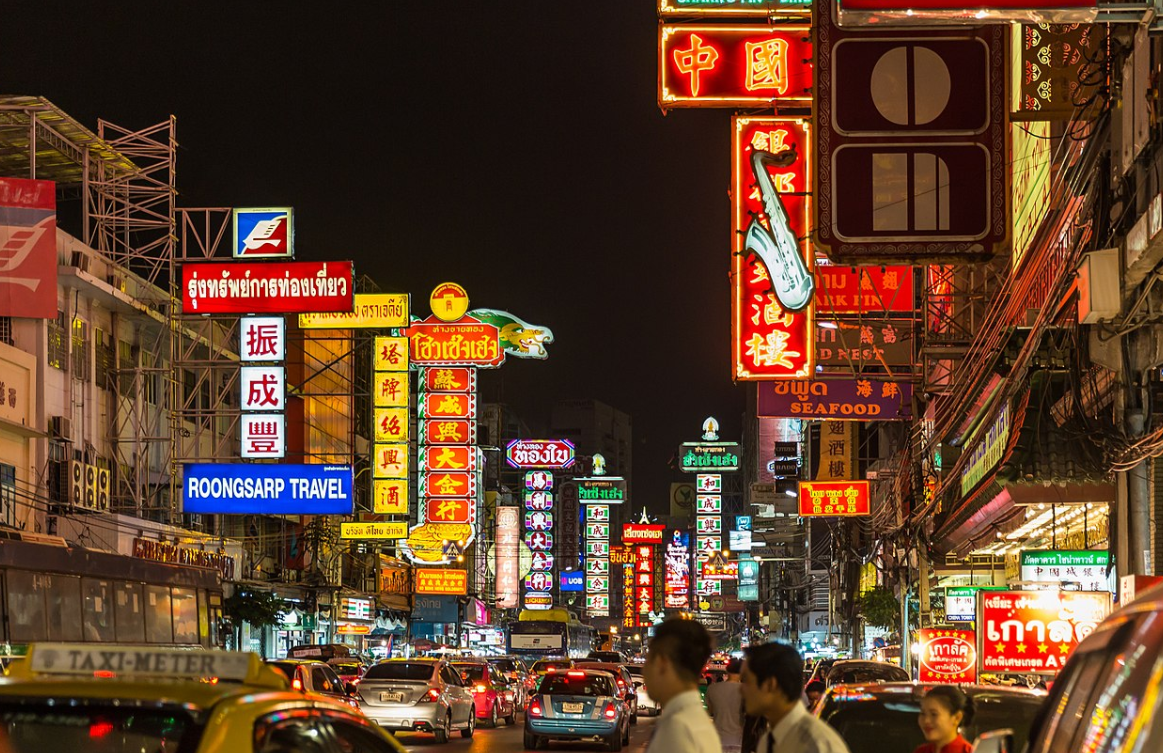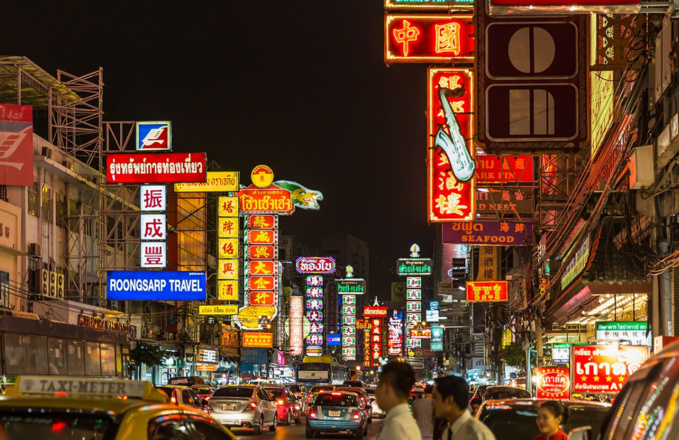The trade war between the USA and the PRC is reducing demand for Chinese goods both abroad and within the country. As a result, Chinese manufacturers already have to cut production, which follows from a statistical report on economic activity for the third quarter published on Sunday. Moreover, as the war continues, the scale of reductions will increase. In turn, the slowdown in production growth may force Beijing to once again resort to stimulating the economy in order to increase its growth rates.
Statistics show that commercial automakers and manufacturers of equipment, machinery and other goods were no longer expanding their activities in September. The reason is simple, and it is the largest reduction in orders from abroad in two years. Large state enterprises and companies continue to reduce production rates along with private companies.
The first data for the third quarter show that the trade war with America is beginning to affect the growth rate of the second economy of the planet. Until that time, their slowdown could be explained by internal debt control campaign, which restricted lending and consumption of both companies and individuals. However, in July, when Washington and Beijing moved from words to deeds and started imposing tariffs against each other, the situation changed.
“Growth in the manufacturing sector slowed sharply in September,” explains CEBM Group economist Zhengsheng Zhong. “The pressure on the Chinese economy was significant.”
This pressure, according to most economists, will force the Chinese authorities to step up incentives to boost the economy. In the first place, it is about facilitating lending, increasing government spending and stepping up the fight against growth of already very high debt.
This year, the main bank of China has already three times reduced the minimum required reserves of commercial banks. Another decline is likely to occur in the remaining three months. This is done to facilitate issuance of loans that will help businesses and firms through difficult times.
There is no doubt that the US-Chinese trade conflict will negatively affect export of the Eastern country and growth of the economy, said the deputy head of the Research Center of the State Council (Government) of the PRC. “Some will reduce production, others will cut down staff, and others may even wind up the business,” he said at a briefing.
According to him, the government will make changes in its monetary policy in accordance with effects of trade war on the economy.
It seems that words of President Trump, who have repeatedly boasted that the American economy is stronger than the Chinese one, are beginning to come true. Recall that in three months, the United States imposed tariffs on Chinese goods with total worth of a quarter trillion dollars. Beijing responded with tariffs for American goods, although for a not-so-large amount of $ 110 billion.
Donald Trump promised to introduce tariffs for another quarter of a trillion dollars. If Washington fulfills this threat, then all Chinese exports to the United States will be burdened with duties. Last year, it exceeded imports of American goods about four times. This explains the "backlog" of Beijing from Washington in the amounts of duties. Soon the Chinese will have nothing to impose their tariffs on.
The trade war is just beginning, but its consequences are already starting to show up. Thus, the Chinese purchasing managers index for the Caixin China processing sector for private companies declined after 15 months of continuous growth, according to Caixin Media Co. and Markit, from 51.0 in August to 50.0 in September. Excess over 50 means economic growth, and if the index is lower, then the economy is declining.
Statistics show that Chinese factories in September exported fewer goods and products. Orders of foreign buyers, although they still maintain a positive trend, showed the lowest growth in September after February 2016.
The official index of purchasing managers for the processing sector for large state-owned enterprises, according to the National Statistical Office of China, also declined: from 51.3 in August to 50.8 in September, although it was forecast at 51.2. This is the lowest rate in seven months. This index exceeds the critical mark of 50 over two years, mainly due to the government’s efforts to rid the Chinese economy of overproduction. The authorities closed mostly private firms, but state-owned companies tried not to touch them. However, now the prospects for state-owned enterprises are as gloomy as for the private sector. Thus, the PMI index of new export orders, showing the demand for Chinese goods abroad, fell from 49.4 in August to 48.0 last month.
source: reuters.com, bloomberg.com, ihsmarkit.com
Statistics show that commercial automakers and manufacturers of equipment, machinery and other goods were no longer expanding their activities in September. The reason is simple, and it is the largest reduction in orders from abroad in two years. Large state enterprises and companies continue to reduce production rates along with private companies.
The first data for the third quarter show that the trade war with America is beginning to affect the growth rate of the second economy of the planet. Until that time, their slowdown could be explained by internal debt control campaign, which restricted lending and consumption of both companies and individuals. However, in July, when Washington and Beijing moved from words to deeds and started imposing tariffs against each other, the situation changed.
“Growth in the manufacturing sector slowed sharply in September,” explains CEBM Group economist Zhengsheng Zhong. “The pressure on the Chinese economy was significant.”
This pressure, according to most economists, will force the Chinese authorities to step up incentives to boost the economy. In the first place, it is about facilitating lending, increasing government spending and stepping up the fight against growth of already very high debt.
This year, the main bank of China has already three times reduced the minimum required reserves of commercial banks. Another decline is likely to occur in the remaining three months. This is done to facilitate issuance of loans that will help businesses and firms through difficult times.
There is no doubt that the US-Chinese trade conflict will negatively affect export of the Eastern country and growth of the economy, said the deputy head of the Research Center of the State Council (Government) of the PRC. “Some will reduce production, others will cut down staff, and others may even wind up the business,” he said at a briefing.
According to him, the government will make changes in its monetary policy in accordance with effects of trade war on the economy.
It seems that words of President Trump, who have repeatedly boasted that the American economy is stronger than the Chinese one, are beginning to come true. Recall that in three months, the United States imposed tariffs on Chinese goods with total worth of a quarter trillion dollars. Beijing responded with tariffs for American goods, although for a not-so-large amount of $ 110 billion.
Donald Trump promised to introduce tariffs for another quarter of a trillion dollars. If Washington fulfills this threat, then all Chinese exports to the United States will be burdened with duties. Last year, it exceeded imports of American goods about four times. This explains the "backlog" of Beijing from Washington in the amounts of duties. Soon the Chinese will have nothing to impose their tariffs on.
The trade war is just beginning, but its consequences are already starting to show up. Thus, the Chinese purchasing managers index for the Caixin China processing sector for private companies declined after 15 months of continuous growth, according to Caixin Media Co. and Markit, from 51.0 in August to 50.0 in September. Excess over 50 means economic growth, and if the index is lower, then the economy is declining.
Statistics show that Chinese factories in September exported fewer goods and products. Orders of foreign buyers, although they still maintain a positive trend, showed the lowest growth in September after February 2016.
The official index of purchasing managers for the processing sector for large state-owned enterprises, according to the National Statistical Office of China, also declined: from 51.3 in August to 50.8 in September, although it was forecast at 51.2. This is the lowest rate in seven months. This index exceeds the critical mark of 50 over two years, mainly due to the government’s efforts to rid the Chinese economy of overproduction. The authorities closed mostly private firms, but state-owned companies tried not to touch them. However, now the prospects for state-owned enterprises are as gloomy as for the private sector. Thus, the PMI index of new export orders, showing the demand for Chinese goods abroad, fell from 49.4 in August to 48.0 last month.
source: reuters.com, bloomberg.com, ihsmarkit.com



















